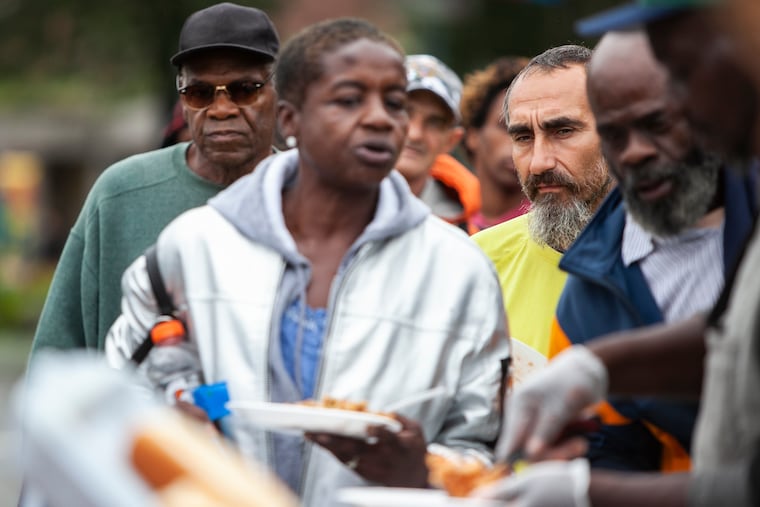Instead of blaming government for Philly’s poverty problems, we must band together | Opinion
We need more than a vision. We need more than another plan. We need a clear and comprehensive articulation of what each of us needs to do.

I know I am not alone in sharing my deep disappointment in the U.S. Census Bureau's recent report on the state of poverty in Philadelphia, the city that we love. The data confirm what many of us suspected: While it may be true in other metropolitan regions that all boats rise with the tide and that positive macroeconomic factors can alleviate the suffering of the poor, that did not happen in Philadelphia. Our poorest neighbors who are looking for a good opportunity and a better life continue to fall inexplicably behind.
I am disturbed, but more than that, I was troubled to see that some of the first responses are to view the Kenney administration as either the solution to or the source of this problem. Most of us would concede that smart governance and sound policy must be a part of any progress on poverty.
As it has been throughout history, government is part of the solution, but not the solution. Rather than cast blame, it is incumbent upon all of us to find our own paths to help address our endemic poverty.
The reason I came to United Way nearly nine months ago was because I had studied other cities that have made progress on intractable social problems, such as poverty. What was true in every city was the leadership that aligned key stakeholders around a common vision that included all the key drivers of economic mobility, and all were challenged to commit to making progress on clear goals and time lines. Progress was measured and accountability shared. In each peer city I studied, leaders from philanthropy, government, the private sector, and citizen leaders put aside grievances, partisanship, posturing, and pettiness in pursuit of something sacred and noble: a clear vision, an achievable plan and — here's the missing ingredient — a deep commitment to execution so that the burden can be shared and progress made.
I came to United Way with the confidence and the belief that every Philadelphian knows deep in their spirit that we must be willing to act collaboratively and sacrificially if our neighbors are to make progress on this social pathology. We need more than a vision. We need more than another plan. We need a clear and comprehensive articulation of what each of us needs to do — and then we need to commit to implementation. From there, we must cheer each other on and hold each other accountable. I have seen firsthand what we are capable of when we are summoned to a powerful vision and then make that vision real through dedication and positive action.
Prior to coming to United Way, I served as the founder and convening minister at Broad Street Ministry. The ministry's century-old sanctuary is neighbor to our finest cultural institutions, five-star restaurants and residences. It looms within the shadow of City Hall, welcoming all who are suffering and in need of hope. What started with a few people looking for help has grown to more than 9,000 unduplicated Philadelphians a year being offered another chance.
This vision, that every Philadelphian deserves dignity and opportunity, was realized through careful collaboration and coordination, and ultimately a commitment to delivering on that vision because our neighbors needed that from us. An unlikely mashup of nonprofit partners, hospitality industry executives, philanthropists, city officials, and an army of thousands of committed volunteers deliver on this vision seven days a week.
Experience makes me confident that the problem of lifting neighbors out of poverty is not larger than us. But we need a different mind- and heart-set. A bold vision, careful planning, and most of all, a sacrificial commitment to execution is the only way we will make progress.
Bill Golderer is president and CEO of United Way of Greater Philadelphia and Southern New Jersey. To learn more about or be part of a cross-sector approach to fighting poverty, email him at bgolderer@uwgpsnj.org.
Philadelphia Media Network is one of 21 news organizations producing Broke in Philly, a collaborative reporting project on solutions to poverty and the city's push towards economic justice. See all of our reporting at https://brokeinphilly.org.